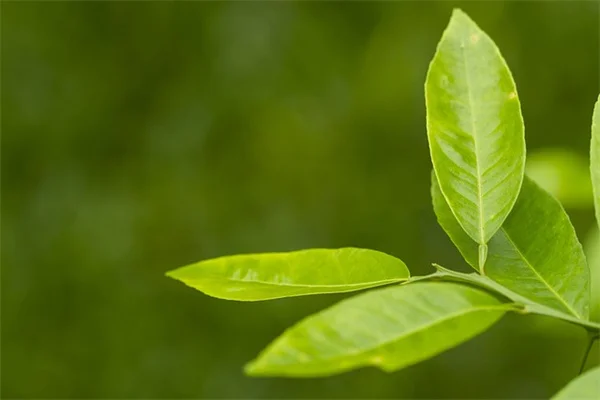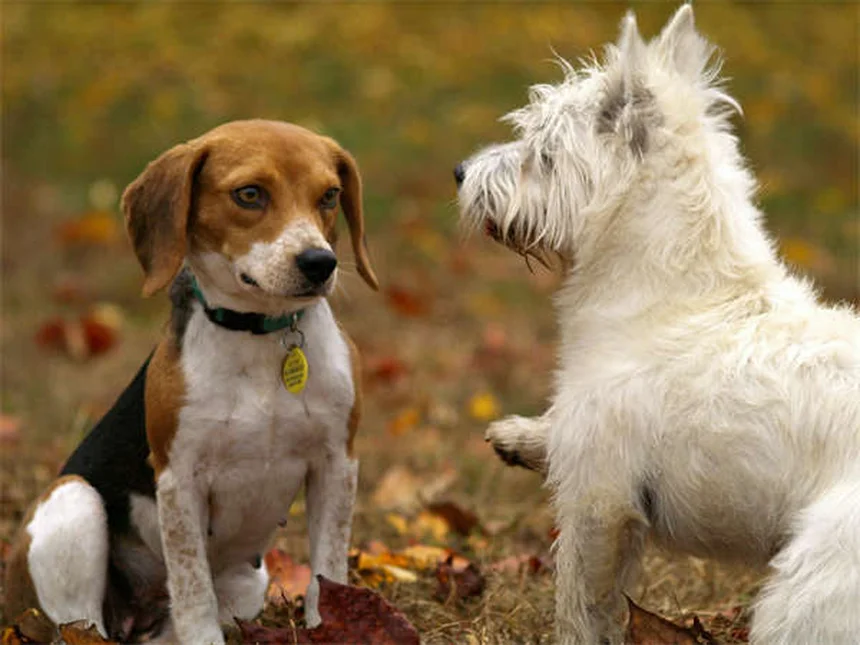Why do foals eat poop? The answer might surprise you! Coprophagy (the scientific term for poop-eating) is actually normal behavior in young horses under five months old. Here's the deal: foals need healthy gut bacteria, and their mom's manure contains probiotics that help develop their digestive system. Think of it like nature's weird but effective vitamin supplement!But before you shrug it off, listen up - there's a big difference between normal foal behavior and problematic coprophagy. If your horse is still munching manure after five months, we've got potential issues. I've seen cases where this signals nutritional deficiencies, parasites, or even stress-related behaviors. The good news? With proper diagnosis and treatment, most horses can kick this messy habit. Stick with me, and I'll walk you through exactly when to worry, when to relax, and what to do about it.
E.g. :Why Fish Pets Aren't Instagram Famous (And How to Change That)
Advertisement
- 1、Why Do Foals Eat Poop? The Weird Truth About Coprophagy
- 2、Solving the Poop Puzzle: Diagnosis and Treatment
- 3、Keeping Your Horse From Turning Into a Poop Connoisseur
- 4、Final Thoughts on This Messy Topic
- 5、The Science Behind Foal Poop-Eating
- 6、Beyond Foals: When Other Animals Do It
- 7、Cultural Perspectives on Coprophagy
- 8、Practical Tips for Concerned Owners
- 9、FAQs
Why Do Foals Eat Poop? The Weird Truth About Coprophagy
When Poop-Eating Is Normal (And When It's Not)
Let's be honest - watching your baby horse munch on manure makes most owners gag. But here's the thing: coprophagy (the fancy term for poop-eating) is actually normal for foals under five months old. Think of it like toddlers putting everything in their mouths - it's how they explore their world.
During those first few months, foals need to build healthy gut bacteria. Their mom's manure contains probiotics that help develop their digestive system. It's nature's weird but effective solution! As long as your foal isn't ONLY eating manure or consuming massive quantities, there's usually no cause for alarm.
Warning Signs You Shouldn't Ignore
Now here's where you need to pay attention. If your horse is still snacking on stool after five months, we've got problems. At this point, coprophagy becomes abnormal behavior that could signal:
- Nutritional deficiencies (especially minerals)
- Intestinal parasites throwing their system off
- Boredom leading to stereotypic behaviors
Ever seen a horse with unexplained colic or ulcers? That's your cue to investigate their poop-eating habits. The table below shows key differences between normal and problematic coprophagy:
| Normal Coprophagy | Problem Coprophagy |
|---|---|
| Foals under 5 months | Horses over 5 months |
| Occasional behavior | Obsessive consumption |
| No health symptoms | Accompanied by digestive issues |
Solving the Poop Puzzle: Diagnosis and Treatment
 Photos provided by pixabay
Photos provided by pixabay
When to Call the Vet
You might wonder: "Do I really need a vet for this?" Here's the deal - while you can spot coprophagy yourself, a vet brings crucial expertise. They'll:
1. Check for parasites that might be driving this behavior
2. Run blood tests to identify nutritional gaps
3. Rule out other digestive disorders mimicking these symptoms
Remember that time my neighbor's gelding kept getting sick? Turns out his manure-munching habit was exposing him to dangerous parasites. A simple deworming protocol fixed both issues!
Creative Solutions That Actually Work
Treatment isn't about punishing your horse - it's about solving the root cause. For mineral deficiencies, we might add:
- Salt blocks with trace minerals
- Balanced grain supplements
- Quality hay to increase roughage
For bored horses? Try these enrichment ideas:
- Hanging treat balls in the stall
- Regular turnout with buddies
- Training sessions to stimulate their mind
Pro tip: If your horse keeps returning to their "favorite" manure pile, consider temporary fencing or moving their feeding station. Sometimes simple environmental changes make all the difference!
Keeping Your Horse From Turning Into a Poop Connoisseur
Daily Management Must-Dos
Prevention starts with basic stable management. I recommend:
- Scooping paddocks at least twice daily
- Using stall mats to reduce dirt consumption
- Providing constant access to clean water
Think about it - would you want to eat off a dirty floor? Your horse doesn't either! A clean environment reduces temptation and keeps them healthier.
 Photos provided by pixabay
Photos provided by pixabay
When to Call the Vet
Here's something most owners miss: "Is my horse stressed or lonely?" Horses are social creatures. Isolation and boredom drive all sorts of odd behaviors, including coprophagy.
Try these stress-busters:
- Install a stall mirror if they're alone
- Play classical music in the barn
- Rotate toys to keep things interesting
Last summer, I worked with a mare who stopped her poop-eating habit after getting a goat companion. Sometimes the solution is that simple!
Final Thoughts on This Messy Topic
When to Worry (And When to Relax)
Young foals exploring their world? Normal. Adult horses making manure their main course? Not so much. The key is observing:
- How often it happens
- Your horse's age
- Other symptoms present
Keep in mind that some horses develop such strong habits that they continue even after we fix the underlying cause. That's when behavioral modification comes into play.
Your Action Plan
Here's what I recommend to all my clients dealing with coprophagy:
- Document when and how much your horse consumes
- Schedule a vet visit to rule out medical causes
- Implement environmental changes immediately
- Be patient - habits take time to break!
Remember, you're not alone in dealing with this messy behavior. With the right approach, most horses can kick the habit for good!
The Science Behind Foal Poop-Eating
 Photos provided by pixabay
Photos provided by pixabay
When to Call the Vet
You know how yogurt commercials talk about "live active cultures"? Well, foals get their first dose of gut bacteria from mom's manure - nature's probiotic smoothie! These microbes help break down tough plant fibers that adult horses digest easily but foals struggle with.
Here's something fascinating - researchers found that foals who don't engage in coprophagy often develop weaker digestive systems. Their gut microbiome lacks diversity, making them more prone to colic later in life. It's like skipping your vegetables as a kid and paying for it as an adult!
The Nutritional Angle You Haven't Heard
While we're talking nutrients, did you know horse manure contains partially digested vitamins? B vitamins especially remain bioavailable after passing through the mare's system. For foals, it's like getting vitamin supplements in the most disgusting delivery system imaginable.
Consider this: a study comparing foals that ate manure versus those prevented from doing it showed:
| Nutrient | Manure-Eating Foals | Non-Manure Foals |
|---|---|---|
| Vitamin B12 Levels | 28% Higher | Baseline |
| Fiber Digestion | Efficient | Struggled |
| Weight Gain | Steady | Irregular |
Beyond Foals: When Other Animals Do It
Rabbits - The Poop Recycling Champions
Ever seen rabbits eat their own poop? They take coprophagy to an art form! Unlike horses, rabbits produce special nighttime droppings called cecotropes that are packed with nutrients. They literally have a second digestive system designed to extract every last bit of nutrition.
Here's a wild fact - if you prevent rabbits from eating their cecotropes, they'll actually become malnourished. Their digestive systems evolved this process over millions of years. Makes horse coprophagy seem almost tame by comparison, doesn't it?
Dogs and Their Gross Habits
Now let's talk about man's best friend - and their worst habit. While foals have biological reasons for coprophagy, dogs? Not so much. Most canine poop-eating stems from:
- Attention-seeking behavior (gross but effective)
- Poor quality food leaving them hungry
- Simple curiosity (the "let's taste everything" phase)
Remember my cousin's Labrador who'd raid the cat's litter box? We solved it by adding pineapple to his food - makes the poop taste terrible to them. Worked like a charm!
Cultural Perspectives on Coprophagy
Historical Uses of Animal Dung
Get this - humans have found uses for animal manure throughout history! Ancient Egyptians used dried donkey dung as fuel for cooking fires. Tibetan villagers still use yak dung to heat their homes. Talk about recycling!
In some cultures, specific animal droppings became medicine. Traditional Chinese medicine used certain types in poultices, while European folk remedies included powdered herbivore dung in tonics. Makes you appreciate modern pharmacies, doesn't it?
The Psychology of Disgust
Why do we find coprophagy so revolting when it's natural for many species? It's all about cultural conditioning. Western societies developed strong poop taboos, while some indigenous groups view animal dung more practically - as fertilizer, building material, or even (in rare cases) food during famine.
Think about it - we happily eat mushrooms that grow on manure, but freak out when a foal does what comes naturally. The irony is thicker than a fresh manure pile!
Practical Tips for Concerned Owners
When Prevention Fails: Damage Control
So your yearling still sneaks the occasional manure snack? Don't panic. Try these mitigation strategies:
- Add apple cider vinegar to water (changes manure taste)
- Use grazing muzzles during turnout
- Feed smaller, more frequent meals
I once worked with a show jumper who'd grab mouthfuls between rounds. We solved it by keeping peppermint treats in our pockets - gave her something better to nibble on!
The Power of Positive Reinforcement
Here's a training trick most people overlook: reward the behavior you want. When your horse sniffs manure but doesn't eat it? Praise and treat! Positive reinforcement works better than punishment for breaking ingrained habits.
Start with short sessions - five minutes of walking past manure piles with rewards for ignoring them. Gradually increase difficulty. Before you know it, your horse will walk right by like it's just part of the scenery!
E.g. :Eating of Non-food Items in Horses | PetMD
FAQs
Q: Is it normal for baby horses to eat poop?
A: Absolutely! For foals under five months, coprophagy is completely normal behavior. We believe they do this to acquire essential gut bacteria from their mother's manure - kind of like how human babies put everything in their mouths. As long as your foal isn't exclusively eating manure or consuming large quantities, there's usually no cause for concern. Most foals naturally outgrow this phase as their digestive system matures.
Q: When should I worry about my horse eating manure?
A: You should become concerned if your horse continues this behavior past five months of age. At this point, coprophagy becomes abnormal and could indicate underlying issues like mineral deficiencies, intestinal parasites, or behavioral problems. Watch for other warning signs too - if your horse shows digestive issues, weight loss, or changes in appetite along with poop-eating, it's definitely time to call your vet.
Q: What health problems can coprophagy cause in horses?
A: The main risks include parasite transmission and digestive upset. When horses eat manure, they can ingest harmful parasites or bacteria that lead to colic, diarrhea, or ulcers. I've also seen cases where excessive dirt consumption (often mixed with manure) causes intestinal blockages. That's why we recommend regular deworming and fecal tests for horses with this habit.
Q: How can I stop my horse from eating poop?
A: First, identify the root cause with your vet's help. For nutritional deficiencies, we might add mineral blocks or balanced supplements. For boredom, try stall toys, more turnout time, or a companion animal. Practical solutions include keeping stalls clean, using feeders that minimize dirt consumption, and temporarily fencing off manure piles. Remember - punishment doesn't work, but positive alternatives do!
Q: Can coprophagy become a permanent habit?
A: Unfortunately, yes. Some horses develop such strong coprophagy habits that they continue even after we correct the underlying cause. That's why early intervention is crucial. If the behavior persists, you might need professional behavioral modification techniques. The good news? With patience and consistency, most horses can overcome this habit within a few months of proper management.

